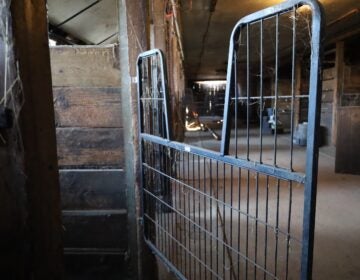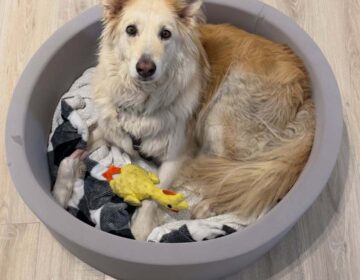From beaches to barns: Cape May nonprofit gives horses a second chance
In South Jersey, a local rescue group is saving abandoned horses and reimagining equine care.
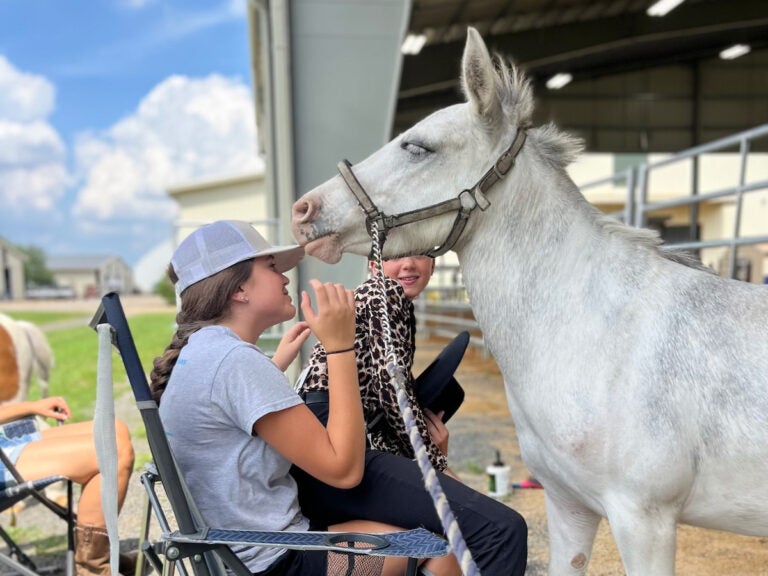
The horse Whiskey enjoying a pet. (Courtesy of Rebecca Yank)
From Philly and the Pa. suburbs to South Jersey and Delaware, what would you like WHYY News to cover? Let us know!
Abby Revoir can’t remember when she first fell in love with horses. As a child, she always dreamed of riding the wide-open pastures, then in sixth grade, her family moved to Cape May County and she got to hang out with her aunt’s horse, Pooka.
“I was instantly connected to him probably because he was gentle. I loved his smell and soft muzzle,” Revoir recalled.
Revoir’s love for horses grew with that interaction, and by high school, she was researching the horse slaughter industry and dreaming up ways to save them. She ended up pursuing equine studies in college, and now she runs Cape May County’s only rescue horse farm.
“There are so many horses out there that don’t have their own person,” Revoir said. “I feel like there’s a person out there for every horse, just like there is for cats and dogs, but all of the rescues I know are full.”
Revoir started small by renting a barn and opening Star Hollow Stables in the Cape May Court House in 2011. To help launch her business, she rescued Solomon from a kill pen in Shippensburg, Pennsylvania. After rehabbing him from abscesses in both front hooves and getting him to a healthy weight, he became her first lesson mount. Her concept was simple: Rescue a horse, rehab and train it and use it to teach lessons. When her students and their parents started asking about ways to adopt, she created Starfish Equine Rescue in 2018.
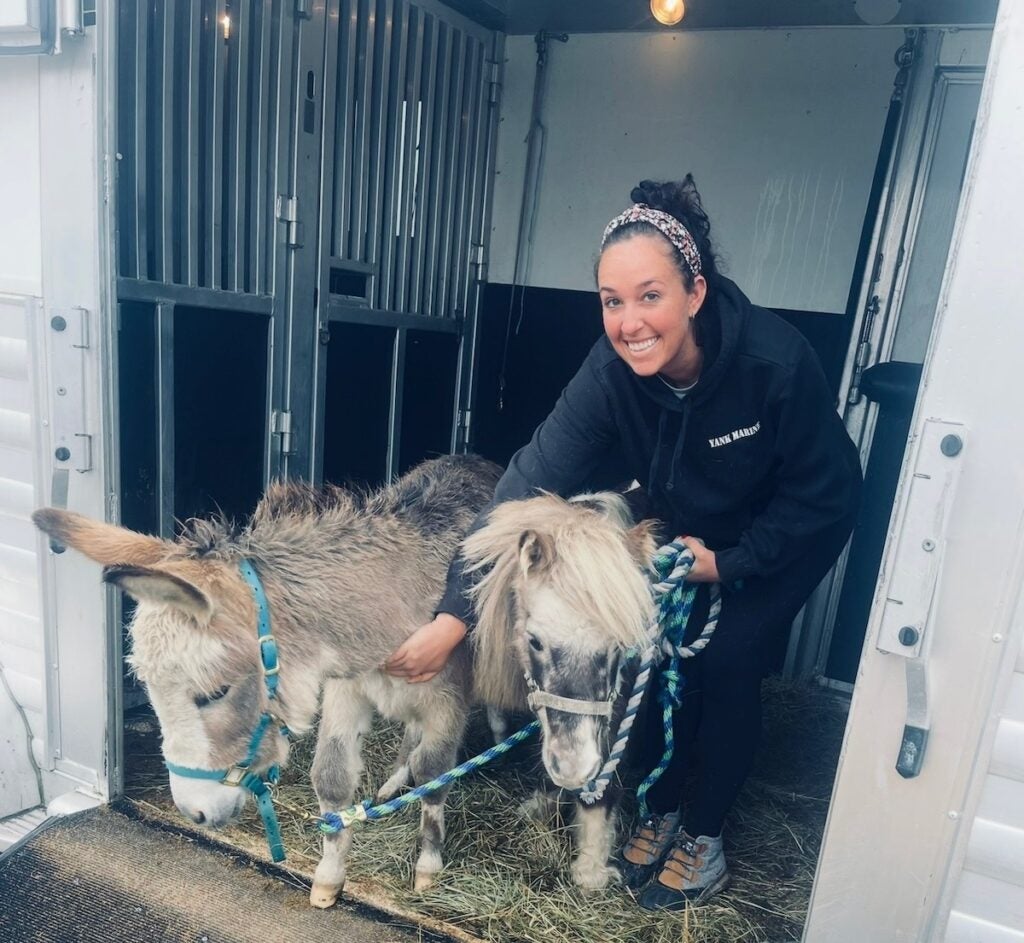
“I started thinking, maybe every year I can save one horse from the slaughter pipeline, put in the time for rehab and find it a good home,” she recalled. “Next thing I knew, we’d saved over 100 horses, many of them are now kids’ horses or show horses.”
More than a decade later, the formula still works, and Solomon, also known as the “king,” at age 25 continues to ride with children.
New Jersey’s rich equestrian culture
Nationally, the American Horse Council reports that the U.S. had 6.6 million horses in 2023, with about 83,000 in New Jersey. Less than 1% of U.S. households own horses. About 85% of horses are kept for pleasure or recreational riding, and 46% of owners have household incomes between $25,000 and $75,000, dispelling the myth that horse ownership is only for the wealthy.
Revoir said as equine activities become leisure-focused, horses are taking on emotional roles similar to dogs and cats, but with a bigger footprint and a longer lifespan.
The 2018 American Horse Publications Equine Industry survey found that 72% of people surveyed identified their horse as a “companion animal/pet” and 65% as a “family member,” while only 20% saw the horse primarily as livestock or an investment.
The cost of compassion
Revoir said raising horses isn’t cheap. She spends at least $450 a month per horse. Donations are at their lowest this year and rising feed and hay costs are making it harder for her to run the rescue. Even routine dental care for four horses costs more than $600, which they try to cover with a $2 Tuesday donation campaign on Facebook. When funding falls short, she and her husband cover expenses.
“We aren’t raising enough funds to provide for the ones we have, so we can’t save anymore until we figure this out,” Revior said in a Facebook post in August.
Some horses can be rehabilitated and rehomed in three to six months. Others, especially those in poor health, may require a year of care. Then there are the sanctuary horses, those unlikely to be adopted because of age or health, who remain at Starfish for life.
Revoir said one of her most challenging and expensive rescues happened last fall. A young thoroughbred horse she later named Addam was found in Ohio starving, freezing and covered in ulcers and rain rot in a field near her husband’s family farm. The owner couldn’t care for him, so they surrendered him to Starfish. The horse was little more than skin and bones, with a grade-four heart murmur caused by severe malnutrition, she said. Rescuing him has been a long and costly process, requiring months of steady food, medical care and patience. But with time, Addam has gained more than 100 pounds, his heart murmur disappeared and he was able to be ridden again. Today, he carries himself like a sleek racehorse, a testament to what rescue can do.
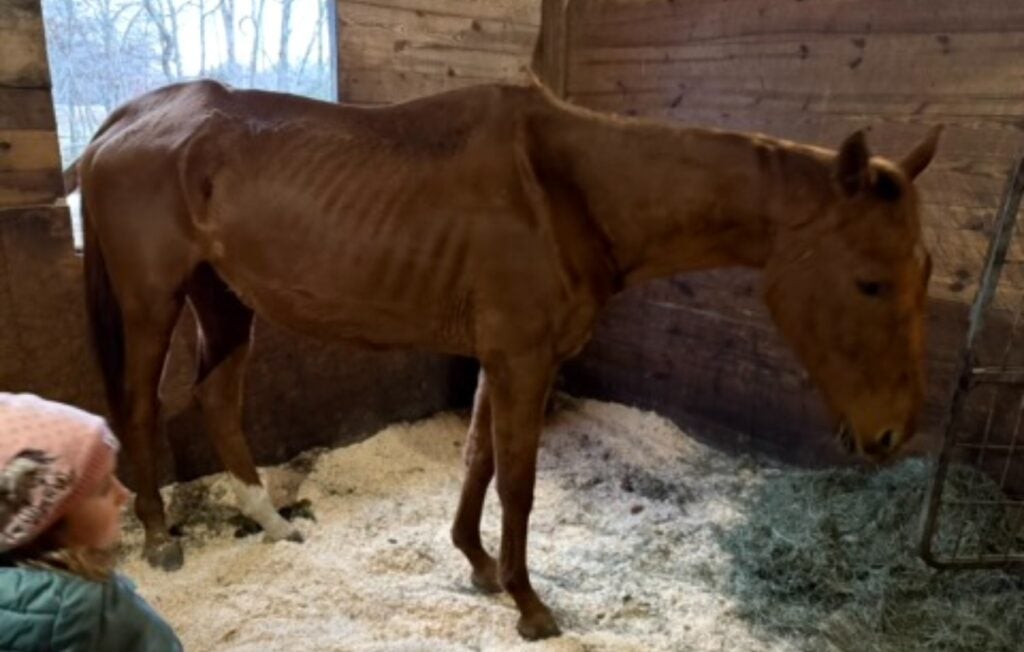
Rebecca Yank, of Upper Township, has adopted several horses from Starfish. After volunteering at the nonprofit, she and her daughter bonded with horses Whiskey, Cherokee and Johnny. All of the horses had their own challenges, including going through auction, being abandoned to a kill pen, being feral and needing months of rehabilitation. Today, Cherokee and Johnny are 4-H state champions, while Whiskey is a family pet.
“Just because they don’t have a pedigree, they can still be phenomenal show, trail or backyard horses. Rescue horses are still horses. You don’t have to shop to find the horse of your dreams. They can come from a rescue. I know because we have three,” Yank said.
Revoir said Cape May County has plenty of opportunities for families to show or ride horses, including the The English Circuit of South Jersey and New Jersey 4-H.
“We can’t save them all, but for the ones we do, it means everything,” Revoir said. “And for them, that changes their whole world.”
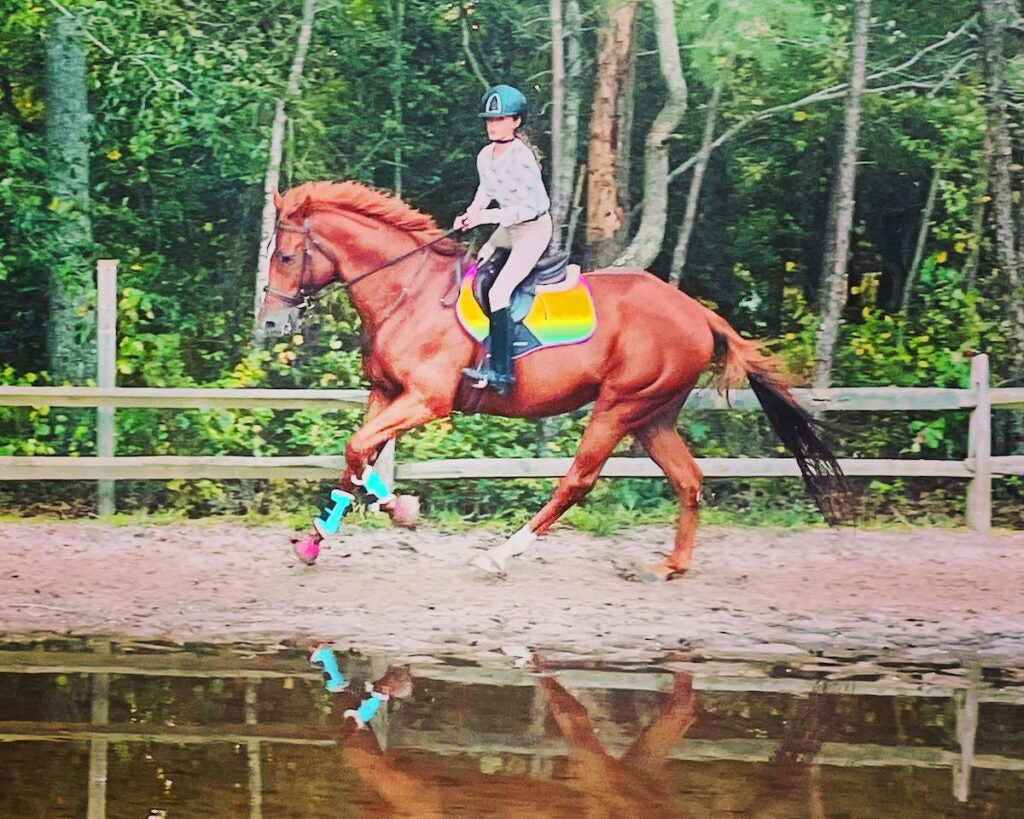
WHYY News is partnering with independent journalists across New Jersey to spotlight the people, communities, cultures and distinctive places that shape the Garden State. This work is made possible with support from the Geraldine R. Dodge Foundation.

Get daily updates from WHYY News!
WHYY is your source for fact-based, in-depth journalism and information. As a nonprofit organization, we rely on financial support from readers like you. Please give today.



